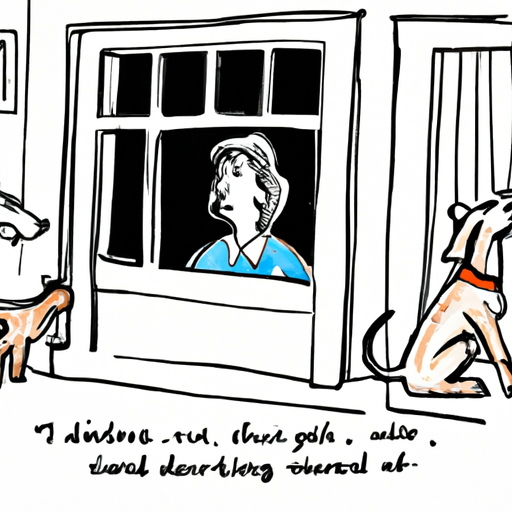It’s a common saying that dogs are man’s best friend. They’re loyal, loving, and great companions in a myriad of situations. However, not everyone shares the love for these four-legged companions. There are those who don’t just dislike them but actually hate dogs. This article aims to delve into the reasons behind this intense aversion and how understanding it can foster better relationships between dog lovers and those who feel otherwise.
Table of Contents
- Understanding the Phenomenon of Dog Hatred
- Psychological Factors Behind Dog Hatred
- Cultural and Personal Influences
- The Role of Fear and Trauma
- Overcoming Dog Aversion
- Frequently Asked Questions
Key Takeaways
- Dog hatred is not just about personal preference, but often rooted in deeper psychological or experiential factors.
- Fear and trauma play significant roles in dog aversion.
- Understanding and empathy can help bridge the gap between dog lovers and those who dislike dogs.
- There are ways to overcome dog aversion.
Understanding the Phenomenon of Dog Hatred
It’s difficult for most dog lovers to comprehend how anyone can hate dogs. However, for people who do, their reasons are often deeply personal and sometimes complex. It’s crucial to remember that their feelings are as valid as those of dog lovers.
Many people dislike dogs due to past traumatic experiences, such as being bitten or attacked. Others may have been raised in cultures or families where dogs were not valued or viewed positively. For some, it might simply be a matter of personal preference or lifestyle compatibility.
Psychological Factors Behind Dog Hatred
Psychology plays a significant role in our likes and dislikes. Some people may have personality traits or psychological conditions that make them more susceptible to developing an aversion to dogs.
For instance, people with obsessive-compulsive disorder (OCD) may have a fear of germs, which can make the idea of sharing their living space with a pet, especially a dog, unbearable. There’s a study that explores this link further.
Cultural and Personal Influences
Cultural and personal factors also play a significant role in shaping our attitudes towards dogs. In some cultures, dogs are seen as unclean or bringers of bad luck. For these individuals, their aversion to dogs is tied to deeply held beliefs and traditions.
On a personal level, some people simply don’t like the responsibilities that come with owning a pet. Dogs require time, attention, and care, which some people are not willing or able to provide.
For more information on the responsibilities of owning a dog, check out this link for a comprehensive guide.
The Role of Fear and Trauma
Fear is a powerful emotion, and it’s often at the root of dog hatred. This fear may stem from a traumatic incident, such as being attacked or bitten by a dog. These unfortunate experiences can leave a lasting impression that transforms into an intense fear or hatred of dogs.
To better understand how traumatic experiences can influence our feelings towards dogs, read this article.
Overcoming Dog Aversion
Overcoming dog aversion is a journey that requires understanding, patience, and sometimes professional help. It’s possible to change one’s feelings towards dogs, especially if the aversion is rooted in fear or trauma.
Here are some steps to help start the process:
- Understand the root of the aversion: Is it due to a traumatic experience, cultural beliefs, or a personal preference?
- Seek professional help: If the aversion is due to a traumatic experience, it might be beneficial to seek therapy.
- Gradual exposure: Start by spending time with gentle and well-behaved dogs. This can help ease fear and build positive experiences.
For further reading on overcoming fear of dogs, this article provides practical advice.
Frequently Asked Questions
-
Why do some people hate dogs?
People hate dogs for a variety of reasons ranging from past traumatic experiences, cultural beliefs, personal preferences, to psychological factors. -
Can you overcome a dog aversion?
Yes, with understanding, patience, and sometimes professional help, it’s possible to overcome dog aversion. -
How can I help someone overcome their fear of dogs?
Encourage them to understand the root of their fear, consider professional help if necessary, and provide positive experiences with well-behaved dogs.
In conclusion, when we encounter people who hate dogs, it’s important to approach them with empathy and understanding. Remember, it’s not about trying to change their minds, but about coexisting with respect for each other’s feelings and experiences.



